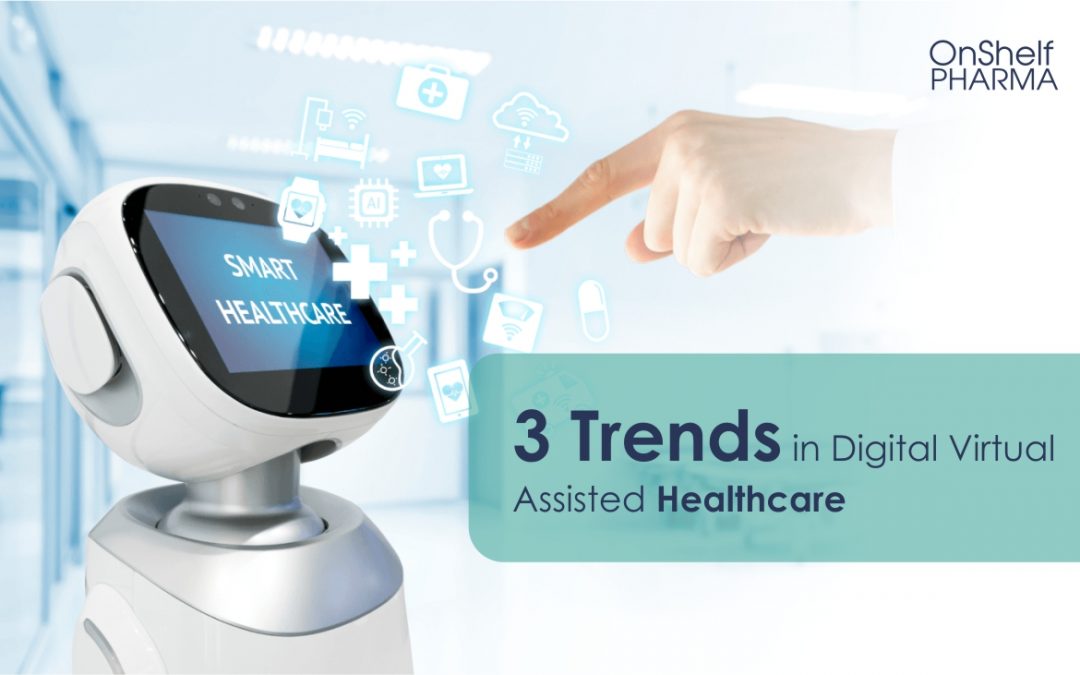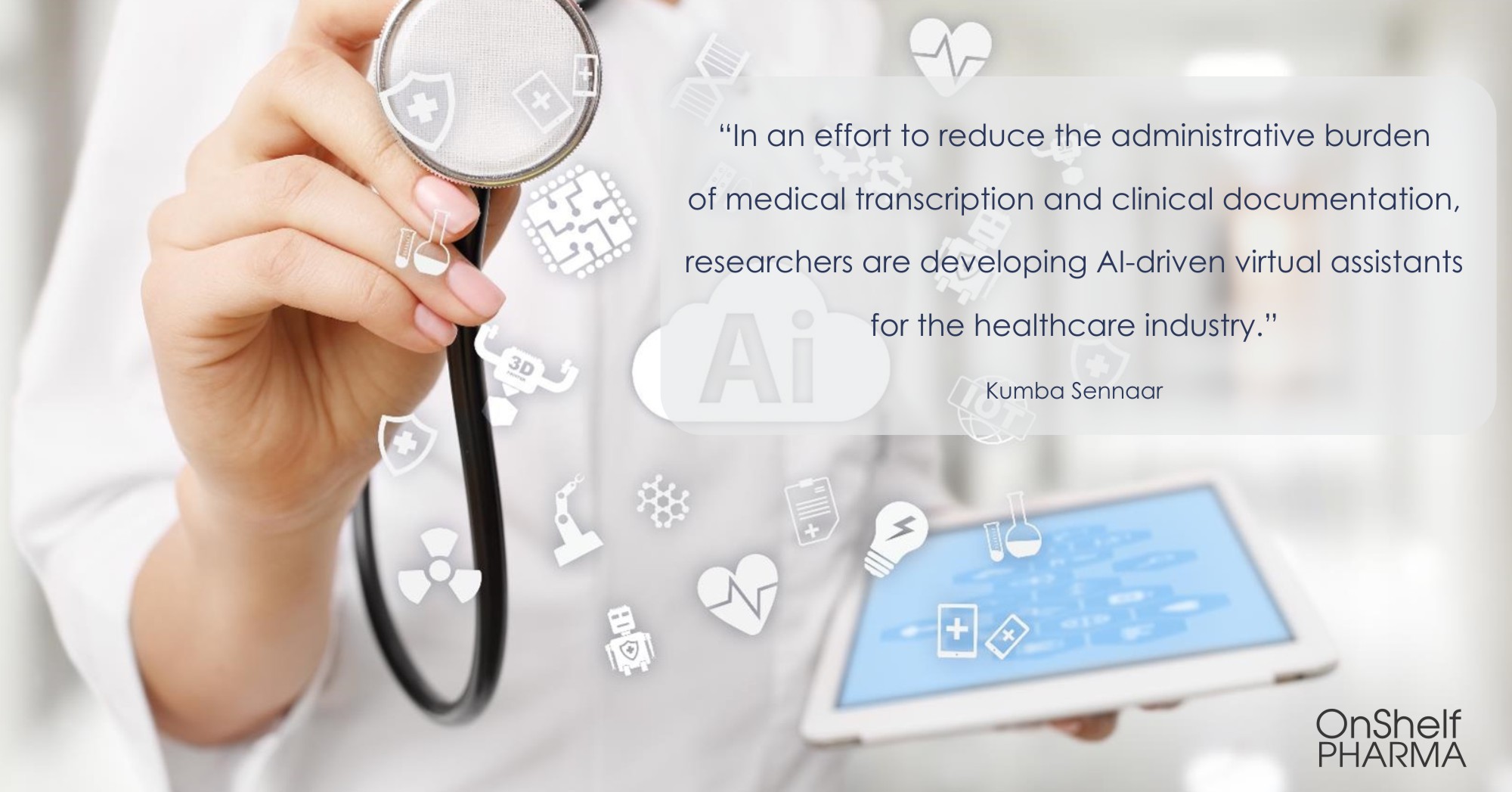Radical disruptions within the global healthcare industry include changing patient expectations, an unprecedented number of elderly people and the ever-increasing pressure on doctors to fulfil both health and administrative work. These factors mean businesses are looking to technological innovation to revolutionise the way we operate and interact within the healthcare system.
“The healthcare virtual assistants market is projected to grow at a CAGR of 34.6% from 2019 to 2024 to reach $1.73 billion.” Research and Markets
According to Medscape’s 2018 “National Report on Physician Burnout and Depression” (compiled with feedback from fifteen thousand US doctors) 15% said they’d had depression of some sort and 42% reported “burnout”. One of the main reasons listed for these statistics was doing “too many bureaucratic tasks”.
These figures, coupled with the rise of digital virtual assistant (the business of virtual digital assistants could reach $15.8 billion in 2021) indicate new technology will be used to ease some of the pressure within healthcare. Here are three of digital programmes which could be ground breaking.
1. The “Digital Concierge” from Advocate Aurora Health
Research Gate reports that primary care physicians spend more than one-half of their working day – that’s almost six hours – interacting with the EHR. Clearly doctors need help and in Deloitte’s overview of the “Digital Hospital of the Future” their report envisages less pressure on staff and doctors via new tech.
Some health systems are already using voice-activated technology to assist patients, administrators and clinicians and Deloitte’s research shows using this can alleviate pressure on staff giving them more time to focus quality, personalised care to patients.
An evolved example of what you can expect within a hospital of the future is the Advocate Aurora Health system – already in use in 27 hospitals and over 500 outpatient sites in Illinois and Wisconsin in the US. They are also in the pilot stages the “Digital Concierge” which that uses “natural language processing” to respond to patient queries with regards to their symptoms.
The Digital Concierge can “Diagnose symptoms and suggest a treatment plan, including whether the patient should go to urgent care, make an appointment with a primary-care doctor, or stay home. It can also help schedule appointments. The digital concierge knows about 5,000 health conditions and will learn more as more people use it.”
2. The Microsoft Healthcare Bot
Microsoft is clear in saying virtual assistance will never replace actual medical professionals. Their Microsoft Healthcare Bot has been designed “ease the burden” from healthcare systems and this will free up (human) medical professionals, allowing them to spend their time more optimally.
The Healthcare Bot is a support programme which aims to uplift healthcare projects. Using the bot, organisations are enabled to create: “AI-powered, compliant, conversational healthcare experience at scale”.
This Microsoft offering markets itself as combining “built-in medical intelligence with natural language capabilities, extensibility tools and compliance constructs”. They site Providers, Payers, Pharma, HMOs, Telehealth as organisations who’ll use their healthcare technology to enable global access to reliable and suitable healthcare services and information.
3. Care Angel

“The increase in our aging population presents many opportunities and also several public health challenges that we need to prepare for.” Richard J. Hodes, MD National Institute on Aging (NIA)
There are already virtual assistant nurse apps such as Virtual Nurse available for free download on Google Play, Alexa, Facebook Messenger and Slack. But what of technology specifically designed to assist people over 65 years old?
Enter Care Angel, founded by revolutionary thinker, Wolf Shlagman, Angel goes further than random care and helps keep a routine check on the health and chronic care management of people at home. This is ideal for the elderly as it doesn’t require them to interact with virtual assistants. The checks are done through personal phone calls, reminders, and messages sent to medical professionals. Care Angel describe themselves as a “First-of-its-kind virtual nurse assistant utilises robust data and analytics to ensure better results, and provides benefits in terms of engagement solutions, chronic condition monitoring, and healthcare management platforms.” They may has started off as one of a kind but there’s no doubt many similar services will be a thing of the near future.
Digital virtual assisted heath care is changing the world and it could work wonders. We need to just keep an eye on the humanity of our digital interfaces – as Meghan Butler says, “For technology made by humans for humans, the secret to closing the trust gap lies in our very humanity–our emotional intelligence.”
Eben Esterhuizen, General Manager, OnShelf Pharma
Note to the Editor:
OnShelf Pharma’s foundation is built by an FMCG specialist and has a culture of tenacity with a smart solution oriented approach. The business has achieved phenomenal growth to become the preferred healthcare sales agency in the healthcare sector.
https://www.linkedin.com/company/onshelf
https://www.facebook.com/OnShelfSA



